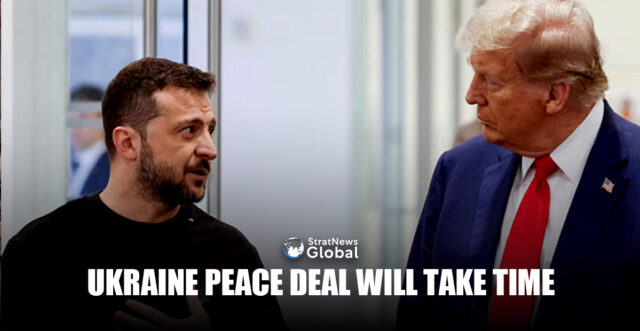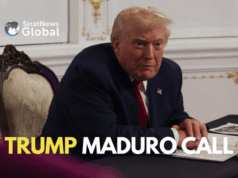Faced with a sharp reality check on his immediate foreign policy goals, advisors to U.S. President-elect Donald Trump said the Ukraine war will take months or even longer to resolve and not on the very day of occupying the White House.
Two Trump associates, who have discussed the war in Ukraine with the President-elect, told Reuters they were looking at a timeline of months to resolve the conflict.
They described the Day One promises as a combination of campaign bluster and a lack of appreciation of the intractability of the conflict and the time it takes to staff up a new administration.
Reality Check
Those assessments dovetail with remarks by Trump’s incoming Russia-Ukraine envoy, retired Lieutenant-General Keith Kellogg, who said in an interview with Fox News last week that he would like to have a “solution” to the war within 100 days, far beyond the President-elect’s original timeline.
Yet even Kellogg’s extended deadline was “way, way too optimistic,” said John Herbst, a former U.S. Ambassador to Ukraine who is now at the Atlantic Council think tank in Washington.
Trump Needs To Persuade Putin
“For this to work, Trump has to persuade Russian President Vladimir Putin that there’s a downside for being intransigent,” Herbst said.
In the run-up to his November 5 election victory, Trump declared dozens of times that he would have a deal in place between Ukraine and Russia on his first day in office, if not before.
Subtle Shift In Rhetoric
In late October, however, he made a subtle shift in his rhetoric, and began saying he could solve the war “very quickly.”
Since the election, Trump has walked back his rhetoric further, often simply saying that he would “solve” the conflict, without offering a timeline.
And the President-elect has said that ending the war in Ukraine will be harder than reaching a ceasefire in Gaza.
“I think, actually, more difficult is going to be the Russia-Ukraine situation,” Trump said when asked about Gaza during a Press conference in December.
“I see that as more difficult.”
Mixed Signals By Russia
Russia has also sent mixed signals regarding a possible peace deal, welcoming direct talks with Trump, while dismissing some of the ideas put forth by his advisers as unworkable.
The Kremlin declined to comment on the Trump team’s updated timeline.
Representatives for Trump’s incoming administration and the Ukrainian embassy in Washington did not respond to requests for comment.
‘Nothing Of Interest’
Russia has made significant battlefield gains in recent months.
While those gains have come at a huge cost in terms of men and materiel, many analysts argue Putin has an incentive to slow-walk a deal while he tries to gain control of more Ukrainian territory.
Herbst pointed to comments earlier this month by Russia’s UN Ambassador, Vasily Nebenzya, who said that the peace plans put forward by Trump’s advisers were “nothing of interest.”
Position Of Trump’s Advisors
While the exact contours of a Trump peace plan are still being mulled, Trump’s advisors generally support taking the possibility of NATO membership for Ukraine off the table, at least for the foreseeable future, and freezing the current battle lines.
Most high-ranking Trump advisors also support giving Ukraine a material security guarantee, such as the creation of a demilitarized zone patrolled by European troops.
So far, the Trump team’s attempts to end the war have proceeded in fits and starts, underlining the degree to which campaign promises can run into the reality of complex diplomatic negotiations.
Trump’s Ukraine envoy Postponed Planned Visit To Kyiv
Kellogg, Trump’s Ukraine envoy, postponed a planned visit to Kyiv before the inauguration, seen as part of a fact-finding mission to give officials a head start on a peace plan, Reuters reported last week.
(With inputs from Reuters)





